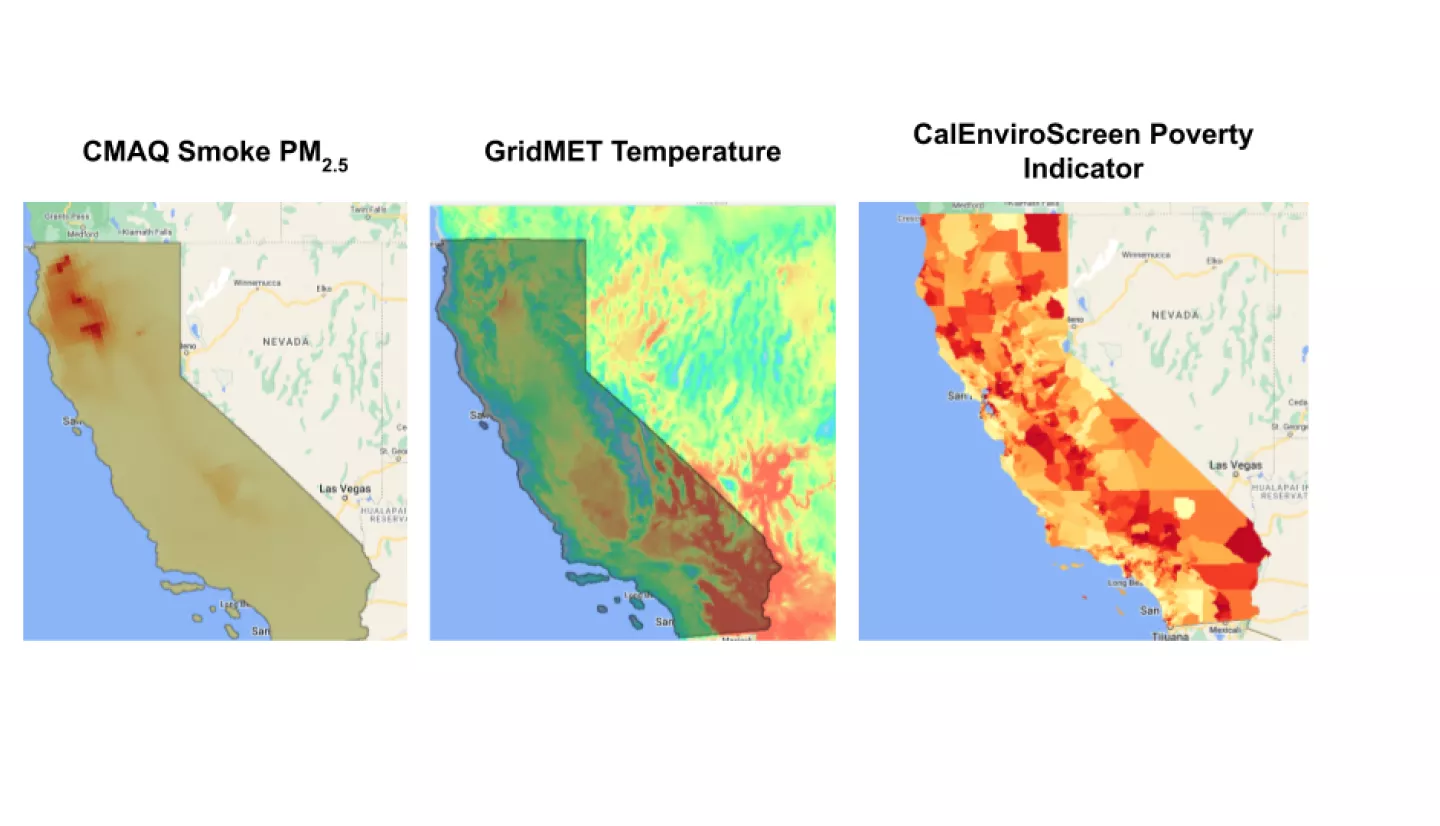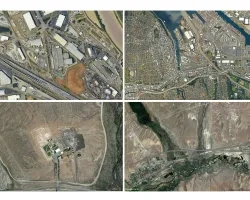Team: Paul English (Tracking California); Michael Jerrett (University of California, Los Angeles); Joseph Wilkins (Howard University, Inc.); Michelle Wong (Tracking California); Jenny Nguyen (University of California, LosAngeles); Eimy Bonilla (Howard University)
Summary
Objectives: Our study will integrate Earth science information and socioeconomic datasets to inform climate vulnerability assessments for environmental justice communities across California. We build on a rich tradition of environmental justice screening tools for California with the inclusion of Earth science information to quantify recent exposures to climate-related hazards and associated health outcomes through a publicly available tool. Our proposed study will examine two leading categories of climate-related hazards, namely smoke pollution and extreme heat, which each expose millions of people across California.
Methodology:
Task 1. Map the past distribution of exposures to climate-related hazards in California.
Our estimates of climate-related hazards will leverage satellite-supported estimates of wildfire smoke exposure and extreme heat at the daily scale from 2008-2018 across California. We will produce exposure maps of individual and co-occurring smoke PM2.5 and extreme heat exposure across California over a decade.
Task 2. Assess vulnerability characteristics and adverse health outcomes associated with climate-related hazards.
We will map vulnerability characteristics of these populations related to adverse health outcomes, including factors that contribute to susceptibility, existing environmental burdens, and adaptive capacity using publicly available information. Finally, we will apply existing dose-response functions from the literature to estimate adverse health outcomes associated with individual and combined climate exposures.
Task 3. Develop online decision-support tool to support environmental justice communities.
We will develop an online decision-support tool to support climate vulnerability assessments for environmental justice communities in California.
Community Engagement and EEJ Relevance:
We will integrate Earth science information with existing socioeconomic datasets to identify three to five EEJ communities in California and identify relationships between climate- related exposures, vulnerability, and adverse health outcomes. We will also share methods and results with other organizations who are involved with climate resilience initiatives in California.
Deliverables:
Our tool will be developed in Google Earth Engine and disseminated through web-based materials available through Tracking California.



